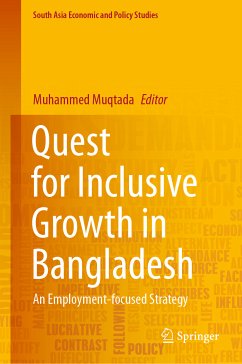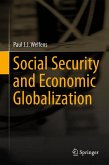Bangladesh has been growing respectably during the past decade and a half and has arguably shown strong progress in several social indicators. However, inequality and vulnerability are rising alarmingly, and the economy is beset with high levels of corruption, as well as with various other governance deficits that can adversely affect future growth and social inclusion. The book provides a critical assessment of how far growth in Bangladesh has been inclusive, both over time, and in comparison to selected South and Southeast Asian countries. It constructs a specific 'inclusive growth index' with reference to what the study considers as the significant goals and pillars of inclusive growth.
Bangladesh is not the only developing country that is faced with the arduous task of tackling unbalanced economic growth and of implementing the 2030 Agenda. Rising vulnerability, inequality, disappointing job growth and poor governance are also major challenges to inclusive growth for many countries in the Global South. Therefore, the appeal of this book extends well beyond the borders of Bangladesh and the South Asian region.
Corresponding to SDG 8, the book is aimed at academia, researchers, policymakers, civil society leaders as well as other national and international development practitioners with an avid interest in issues concerning growth with equity, and in sync with the 2030 Agenda for Sustainable Development. In addition, the book is a valuable resource for interested students of disciplines related to economics and development policy.
Dieser Download kann aus rechtlichen Gründen nur mit Rechnungsadresse in A, B, BG, CY, CZ, D, DK, EW, E, FIN, F, GR, HR, H, IRL, I, LT, L, LR, M, NL, PL, P, R, S, SLO, SK ausgeliefert werden.
Hinweis: Dieser Artikel kann nur an eine deutsche Lieferadresse ausgeliefert werden.









